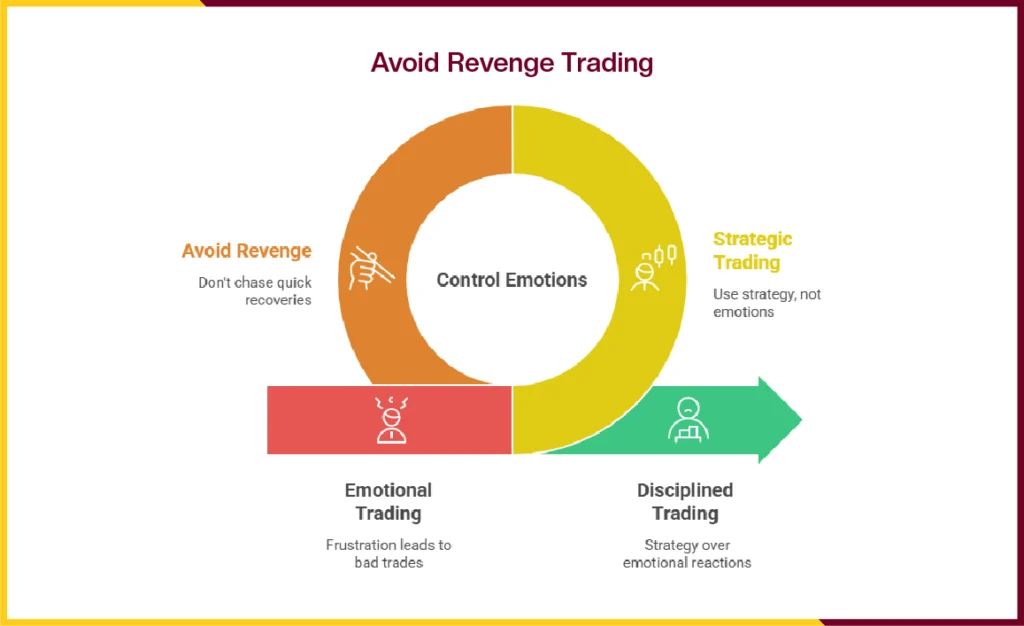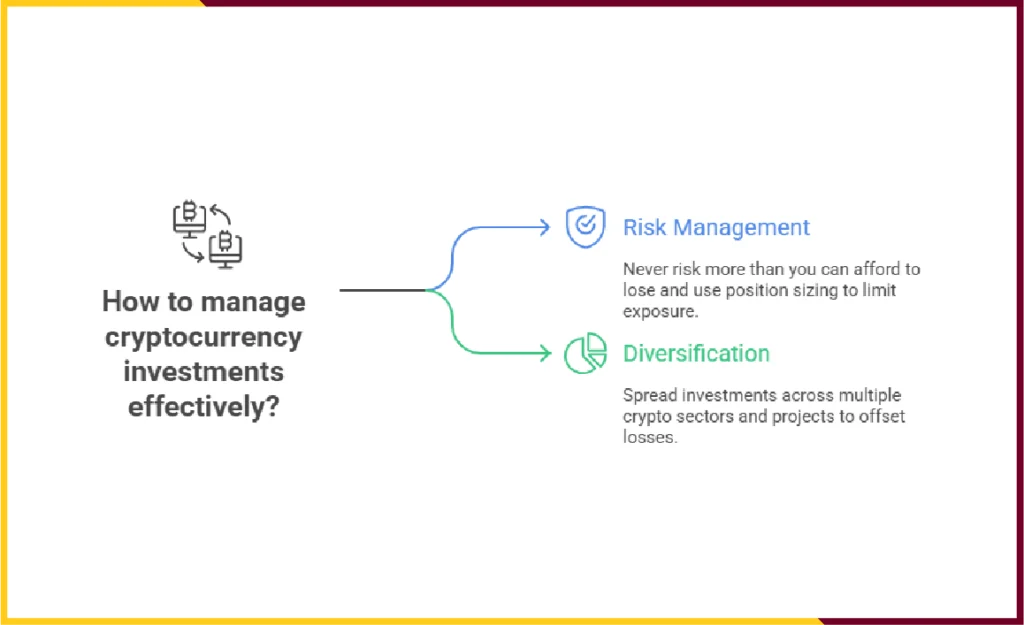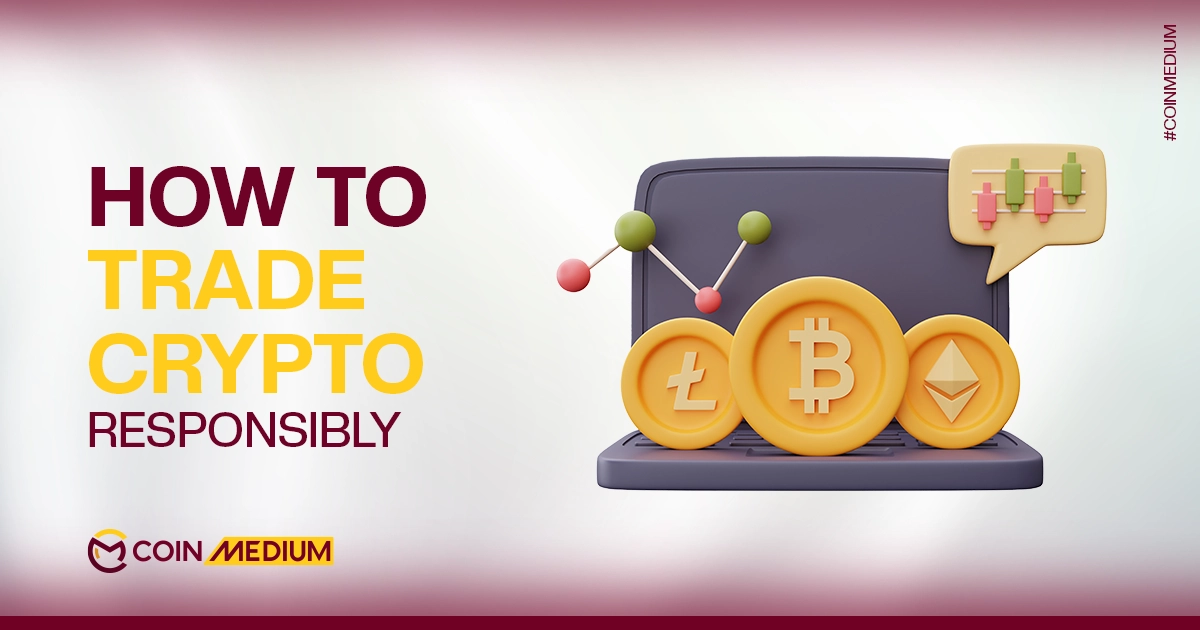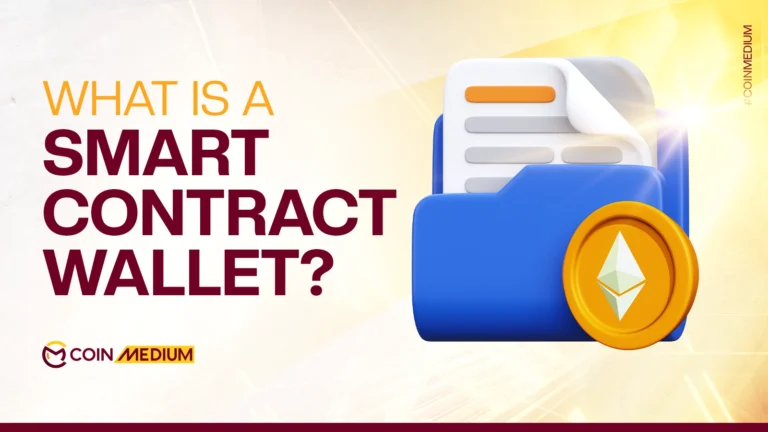- What are the key risk management strategies beginners should use when trading cryptocurrency?
- Why should beginners approach leverage with caution?
- What common emotional pitfalls, like revenge trading, should traders avoid?
- How can proper money management and portfolio diversification help minimize losses?
- What essential security measures should new crypto traders take?
Cryptocurrency markets have minted millionaires overnight, but they have also wiped out fortunes just as quickly. As digital assets continue their volatile dance, a new generation of traders seeks to unlock the secrets of sustainable crypto profits.
But considering the volatile nature of this market, beginners must create basic blueprints about investment strategies before risking their money. Beginners especially should know their entry and exit points, their overall investment objectives, and, most importantly, study the market before investing.
A smart investor manages his trades by risking only a small portion of the total money and setting clear limits on how much can be lost.
If you are new to crypto, protecting your money should be a top priority.
Start by securing your exchange account with a strong, unique password and turn on two-factor authentication (2FA), which adds an extra layer of protection when logging in.
Also, use a feature called withdrawal address whitelisting, which lets you lock your account so that crypto can only be sent to wallets you have approved. This way, even if someone breaks into your account, they won’t be able to steal the funds.
No amount of trading skill will help if your account is not secure.
Once your security basics are in place, the next major decision is choosing where to trade. New traders face a crucial choice between centralized and decentralized platforms.
Centralized exchanges offer convenience, high liquidity, and customer support, but you surrender control of your private keys to third parties.
Decentralized platforms give you complete control over funds but typically provide lower liquidity and more complex UIs’.
Ideally, beginners should start with reputable centralized exchanges that offer insurance coverage and strong security records.
Research their regulatory compliance and track record before depositing funds.
As you gain experience and accumulate larger amounts, gradually transition to hardware wallets for cold storage of long-term holdings.
Never share your private keys or seed phrases with anyone. Choose wallets based on your specific security needs, and always conduct thorough research before trusting any platform with your money.
Risk Management Is The Key To Successful Trading
Another critical factor that ties directly into risk management is leverage. While it can boost a trader’s buying power and amplify potential gains, leverage is a double-edged sword. It also increases the risk of significant losses. For beginners, this makes it essential to approach leverage with extreme caution and a clear understanding of its impact.
When traders use 10x leverage, a mere 10% market move against their position eliminates their entire investment. Exchanges automatically liquidate positions when losses exceed initial capital, leaving traders with nothing.
Smart beginners should start with a maximum leverage ratio of 2:1 or 3:1 while they build a solid understanding of the fundamentals.
Many exchanges now cap leverage for new users to promote responsible trading behavior. Moreover, before venturing into leveraged positions, consider whether straightforward spot trading better aligns with your risk tolerance.

Avoid the Revenge Trading Trap
Alongside managing leverage, controlling your emotions is crucial. One of the most common pitfalls for new traders is revenge trading — a destructive habit that has wiped out more beginner accounts than major market crashes.
It happens when traders, frustrated by back-to-back losses, try to win their money back by placing bigger and riskier trades. Driven by emotion rather than strategy, they chase quick recoveries and often end up digging a deeper hole instead.
When facing a string of losses, it is important to take a break and return only when you can trade calmly and stick to your plan. Emotional trading driven by frustration often leads to bigger mistakes.
Fear of Missing Out (FOMO) is another major trap for beginners, pushing them to abandon solid strategies in favor of chasing quick profits. Social media worsens this by flooding users with hype, rumors, and paid promotions that can cloud judgment.
Many influencers promote projects for payment, regardless of their true value. While sharp price moves can offer real opportunities, rushing into trades without proper research is risky.
Successful investing, therefore, means staying disciplined, doing your own homework, and focusing on long-term growth instead of short-term hype.

Master Money Management Fundamentals
Apart from this, proper money management separates successful beginners from reckless risk-takers. Never risk more than you can afford to lose completely, and use position sizing to limit exposure on individual trades.
Diversifying across multiple assets rather than concentrating everything in one or two cryptocurrencies is another important factor for a beginner.
Spread investments across different crypto sectors: DeFi protocols, layer-1 blockchains, stablecoins, and various altcoins. This strategy helps offset losses in one area with gains in another.
Within each category, select multiple projects rather than betting everything on a single asset.

Beginners should also use stop-limit orders to automate risk management when they cannot monitor markets around the clock. Set stop prices to trigger orders and limit prices to control execution.
For example, if you buy Bitcoin at $30,000 and watch it rise to $50,000, set a stop at $45,000 with a limit at $44,500 to protect most gains. Leave gaps between stop and limit prices to ensure orders fill during volatile conditions.
Beyond the fundamentals outlined above, there are numerous other important strategies and precautions that every trader should consider to navigate the crypto market safely. Continually educating yourself about market trends, technical analysis, and emerging regulations can give you an edge in making informed decisions.
To stay informed on the latest market trends, exploring reputable media platforms such as CoinMedium.com is a smart choice.
Additionally, using tools like portfolio trackers and analytics platforms can improve your oversight and decision-making.
Most importantly, always stay vigilant against scams and phishing attempts, and regularly update your security protocols as threats evolve.
Remember, safe trading is not about eliminating risk, but about managing and mitigating risks so that your capital is preserved and positioned to grow over time.
In the ever-shifting landscape of cryptocurrency, no single strategy guarantees success. However, combining solid risk management, emotional control, security measures, and ongoing learning creates a strong foundation that will help you withstand the ups and downs of the market.







